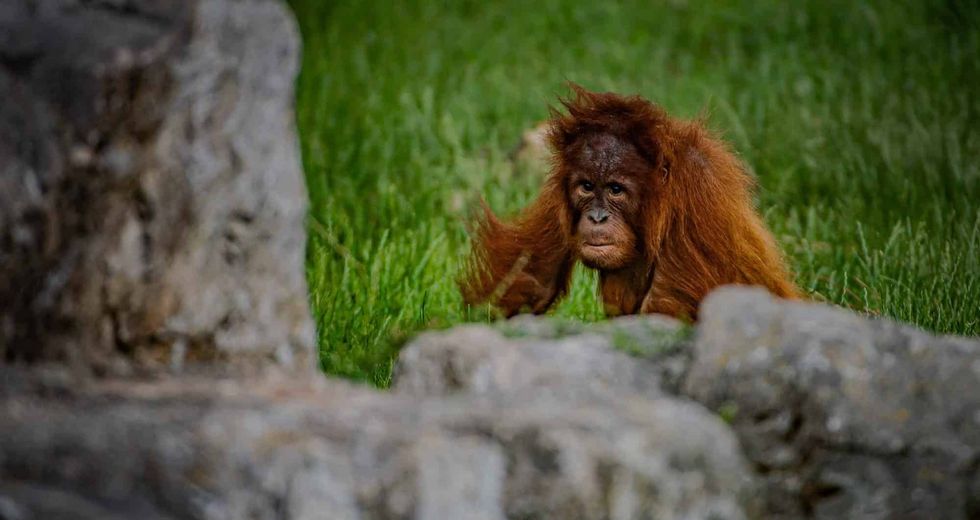The world renowned Vancouver Aquarium hosted the 2016 International Aquarium Congress (IAC). Itwas also the aquarium's60th anniversary.
The conference is the major event for professionals working in the public aquarium sector. Held every four years, itbrought together more than500 delegates from over 120Sponsors for the conference included zoo and aquarium design firm The ZoOceanarium Group and theming construction firm Cost of Wisconsin.
Aquariums, a Force for Change
The International Aquarium Congresswas packed with speakers from the world’s leading aquariums. Theyhighlighted the vital conservation work aquariums do. However, there werealso a number of keynotes designed to look atthe broader issues affectingthe marine environment.Thenight before the congress, Vancouver Aquariumheld the opening reception. It was well attended and gavedelegates a good introduction to both the local marine life and the aquarium's conservation work.Despite being a ticketed event, at least one local tried to crash the party ( below ).
Grow the Choir
He then emphasized the importance of the global aquarium community and the role it plays in educating a public that is, at times, ”tired of bad news”. Education about the many threats facing our marine environment is of course vitally important, but should include a good emphasis on the solutions as opposed to just highlighting the problems.
With this message in mind he said that, though the aquatic environment faces many challenges, “The thread running through the conference is positive”. Aquariums should be a “force for change” and help “grow the choir”.
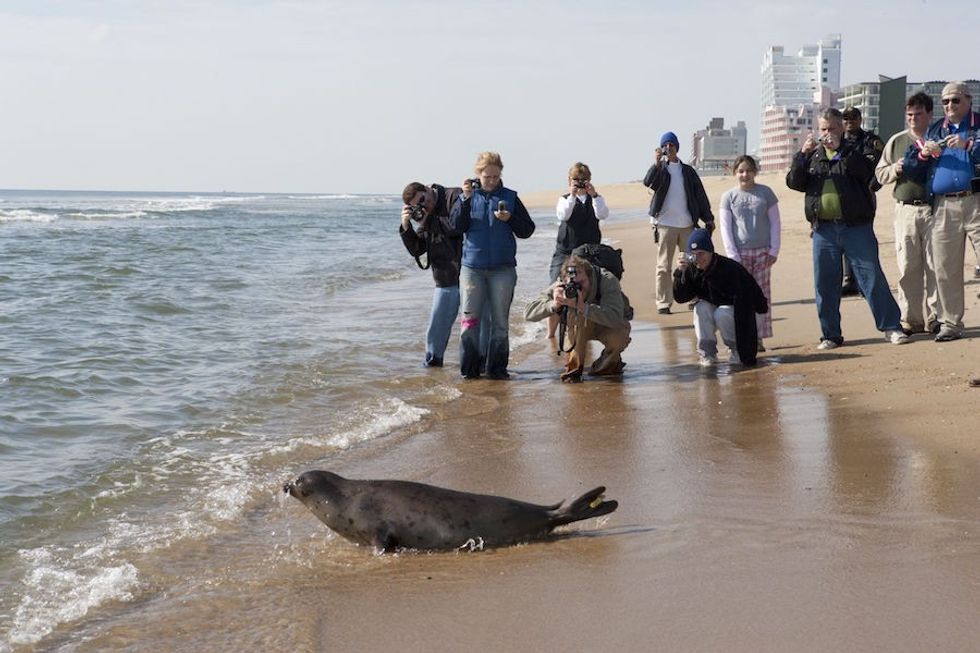
The Key Role of Public Aquariums
The keynotes were in turns fascinating, bleak, enthralling and inspiring.Two sessions, from John Englander and Dr Gregry Flato looked at the impact of man-made climate change on the environment. Englander told delegates how climate change is making the sea warmerandchanging its acidity.It is also adding vast amounts of fresh meltwater to the oceans, thus raising sea level and altering ocean currents. He suggested that the problem is so deep that our only hope is to slow down and attempt to mitigate its effects.
The key was education and public aquariums, with over half a billion visitors a year, can play a vital role. He showed a video of him in the Arctic watching glaciers breaking off into the sea. “If you entertain any idea of stopping an iceberg”, he said’, “you’ve never seen one”.
Dr. Flato delivered a remarkable keynote on the second day. Looking at climate change models and projections, he ran through the evidence with a series of powerful graphs and charts, each illustrating the alarming and indisputable nature of the challenge facing us. His presentation was understated, authoritative and riveting.
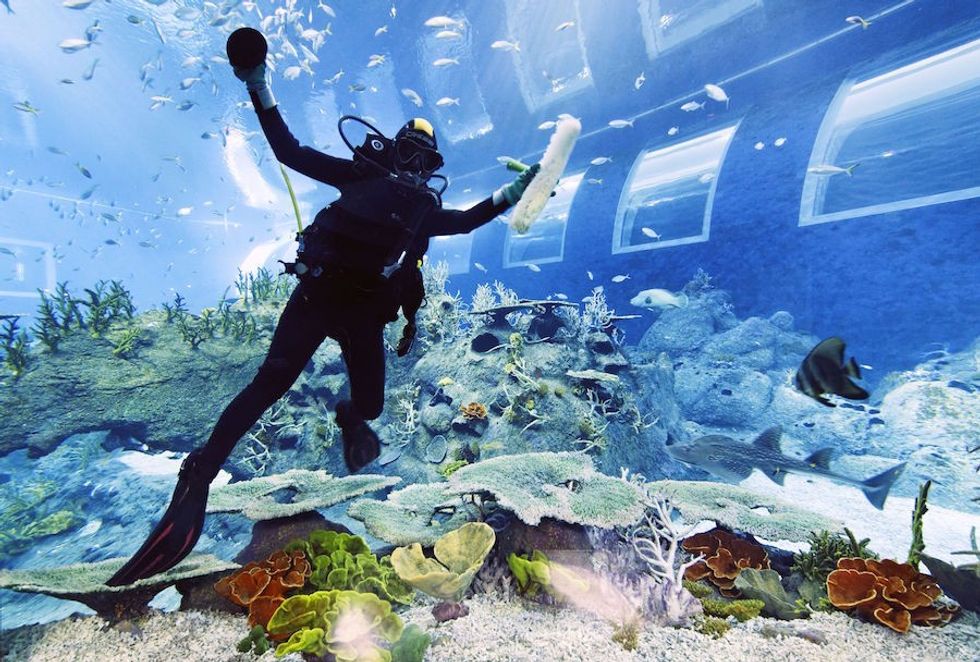
Tinkering with Ecology
Other keynotes looked more specifically at the challenges facing both marine and freshwater ecosystems.Dr. Paul V. Loiselle, Emeritus Curator of Freshwater Fishes at the New York Aquarium spoke eloquently about the challenges facing freshwater fish. With free-standing fresh waters making up ony 0.5% of the earth’s water, they are home to 40% of the approximately33, 000 identifiedfish species. The huge pressures placed upon these often small and isolated communities are causing many extinctions to the extent that some species now only survive thanks to the dedication of the hobbyist community.
Dr. Loiselle advised public aquaria to work more closely with hobbyists as the latter providea huge reservoir of experience and successful husbandry to tap into and work with. He said that more species, rapidly disappearing in the wild, should be captive bred and the species safe guarded by public aquariums.
We were, said Dr. Loiselle, "tinkering with ecology on a Faustian scale" and cautionedthat“If you take apart a clock, it is a good idea to have a box in which to put the pieces”.
Coral Reefs Showing Resilience
Another fascinating keynote at the International Aquarium Congress was from Dr. James Guest. Helooked at the health of the world'scoral reefs, and cited “Reasons for Both Optimism and Despair”.
An academic and researcher, his work focuses mainly on reefs in Southeast Asia and Micronesia.He studiesthe environmental and ecological processes that impact the persistence and potential recovery of reef communities, especially in heavily impacted environments. He is also a science advisor to coral reef conservation charity, SECORE International.
In a fascinating review of the world’s reefs, he discussed the Caribbean (“the poster child for degradation of reefs”)andThe Great Barrier Reef. He also highlightedthe seemingly disturbed reefs of Singapore, which are showing a remarkable and unexpected resilience.
Dr. Guestalso touched on the idea of “assisted evolution”. Hewondered if corals showing thermal tolerance were perhaps losing out in other areas (“a trade off?”). He managed to successfully deliver a sobering, scientific analysis of an undoubtedly grave situation, but also inject a note of cautious optimism.A tough trick.
Husbandry and Business
The days were organised with keynotes in the early morning then from late mornings onwards there were twosessions running concurrently. Thesewere more specific and focussed on either the animals or the business operations of aquariums.Subjects covered in the formerincludedElasmobranch husbandry, marine mammal and turtle conservation, andaquatic diseases.Broader business and conservation issues were addressed in the other sessions. Theseincludedtemporary exhibits, new aquariums being built, coral conservation, life support systems, education, public outreach and field conservation.
As theInternational Aquarium Congress had over 95(!) presentations, it was not possible to catch them all, but highlights included:
Coral, Collection, Breedingand Trust Work
Jamie Craggs, Aquarium Curator at London's Horniman Museum and Gardens spoke aboutProject Coral.He is the founder of this pioneering multi-year research project, the aim of which is toinvestigate the impact of climate change on corals.It has a particular focus on their tolerance to the changing chemistry of the ocean and how this impacts upon coral resilience and ability to reproduce.
Lyle Squire, CEO andDirector of Queensland-based CairnsMarine gave delegates an insight into the practicalities of sourcing animals on the reef in Australia. His talk was entitled, "Sustainable Collections from Pristine Reefs".
The territory is vast. Lyle used Google Maps togood effect, showing just how infinitesimallysmall the area from whichthe company sources its coralsis. The health of the entire reef system is the key concern not the less-than-minimal impact of the collection ofstock from the reef.
The Queensland Coral Fishery has a total quota of 200 tons of coral a year. This comprises 60 tons of live coral and the remainder is live rock and Acropora coral. Itrepresents around 0.00004% of the reef's annual regrowth.
Paul Cox is Managing Director ofthe conservation body, The Shark Trust. He ran through the issues effecting sharks and talked about The Trust'svital conservation work.
Plastic not Fantastic
Rob's session at the International Aquarium Congress lookedat how Sea Life works withGrey Nurse Sharks ( Charchaias Taurus ). He then discussed their successful management in captivity.
Dr. Peter Ross ofThe Vancouver Aquarium Marine Science Centre spoke about ocean pollution and ocean plastics. Hedetailed the recent history of ocean pollution and outlined some notable success stories. A toxologist, Dr. Ross studies marine mammals as they are the "perfect canaries in the coal mine". He then focused on plastics. With each of usbeing responsible for our own weight in plastic per year, the problem of plastic pollution is huge. Identifying exactlywhich chemicals to hone in on, is in itself "a black art".
Julie Packard's closingKeynote
Thefinal keynote of theInternational Aquarium Congresswas fromJulie Packard. Julie is the CEO and co-founder of Monterey Bay Aquarium.She delivered a briliant, inspirational presentation. Talking about howaquariums should engage with the public, she suggested they should, "be local, be engaging & know your audience". With wonderful, astonishing exhibits, they should"be a portal for cool stuff!"
However, Packard also counselled that one of the biggestchallenges is learning about the aquarium's guests. "What thevisitors think? We know more about what is going on in the tanks than outside them.
"We need to nurture actions that make a difference, like seafood. And then grow them up into movements."
Packard acknowledged that "people love cute furry things". As a scientist, she said, this could befrustrating. In spite of this, she pointed out that this propensity couldnevertheless be leveraged.Learning about the visitors was key to education and tohelping aquariums in thierconservation initiatives. "Forget what we want people to know, what do THEY want to know!
On a final note, Packard tiedtogether the threads running through the conference.Shedidn't underestimate the challenge faced by the aquarium community, and she didn't downplay the serious nature of the impact of man-made climate change. She said, however, that she was an optimist.
"People are the problem but also the solution. There are so many great things happening around the world. Our responsibility is to create a positive future."
The10th International Aquarium Congress:introducingFukushima
The next and tenth International Aquarium Congress will be at Aquamarine Fukushima in Japan. Itwill be held in early November 2018 with a working title of, “Think about Our Future on the Water Planet”.In conclusion, Director Yoshitaka Abe and his colleagues gave a colourful, flag-waving finale to the conference. They extended a warm invitation to delegates to visit Japan forthe conference. If their kind invitation lost a little in translation, ("Fukushima radiation levels are down to almost the same as other cities like LA. There's nothing to worry about") it was nonetheless heartfelt.
As the International Aquarium Congress 2016ended and the assembled aquarists, marine biologists and aquarium exectuves headed home, they could reflect on a successful week. With the wonderful hospitality of the Vancouver Aquarium, a conference packed with eye-opening, fascinating presentations and the glorious city of Vancouver providing a stunningbackdrop it was a week to remember. Onwards to Fukushima.
Image credits: main image, turtle and girl courtesy National Aquarium, Baltimore, othersBlooloop unless otherwise credited.




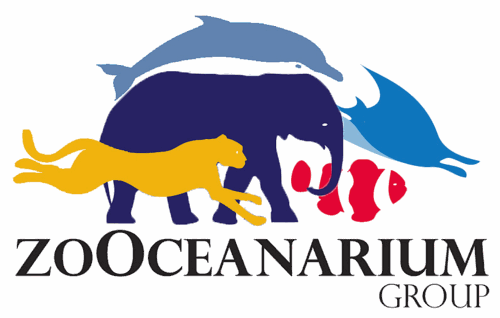
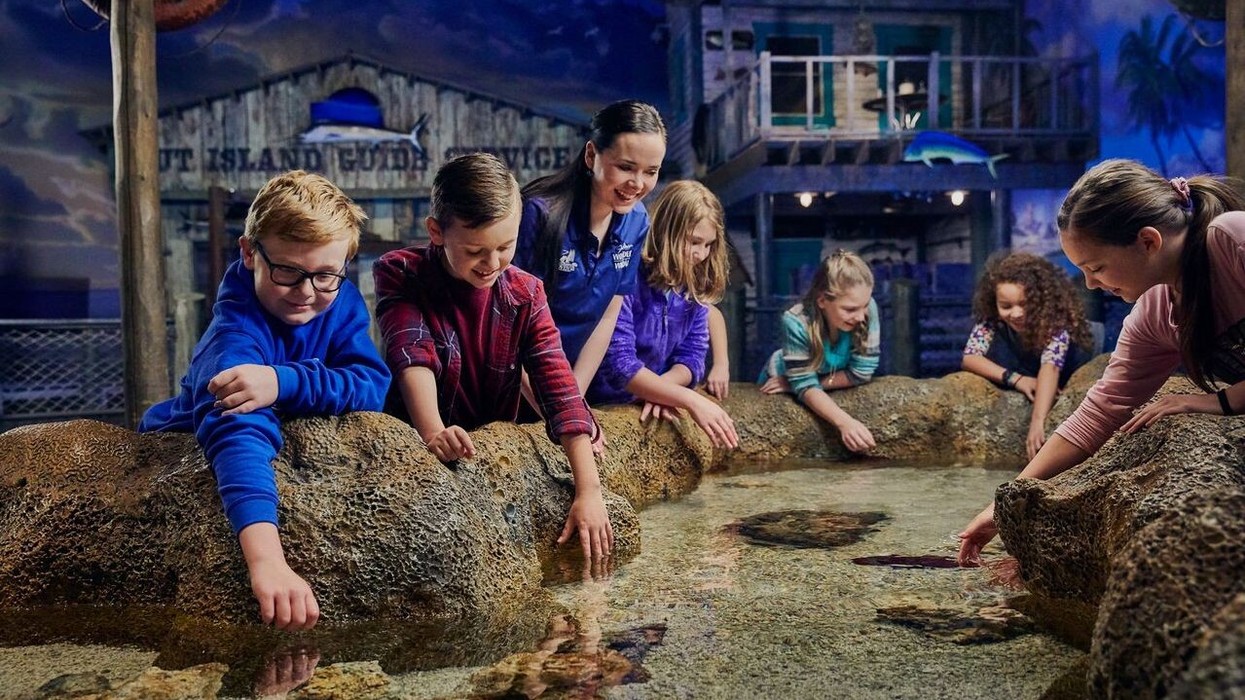
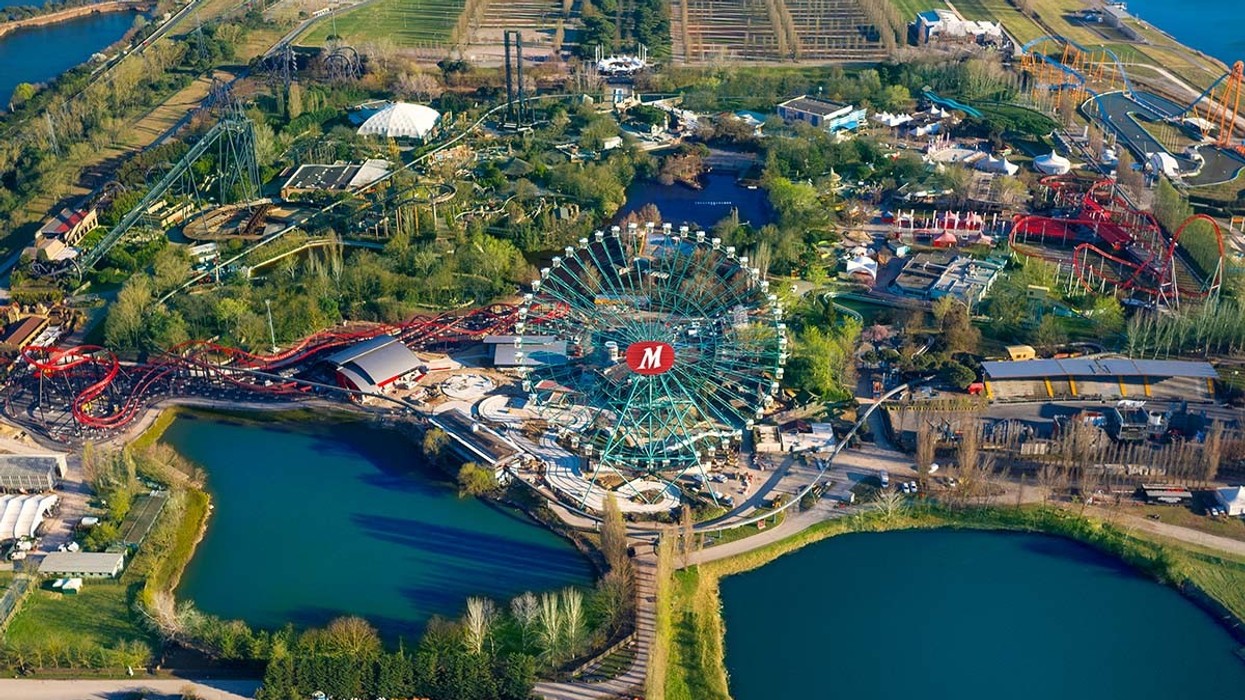

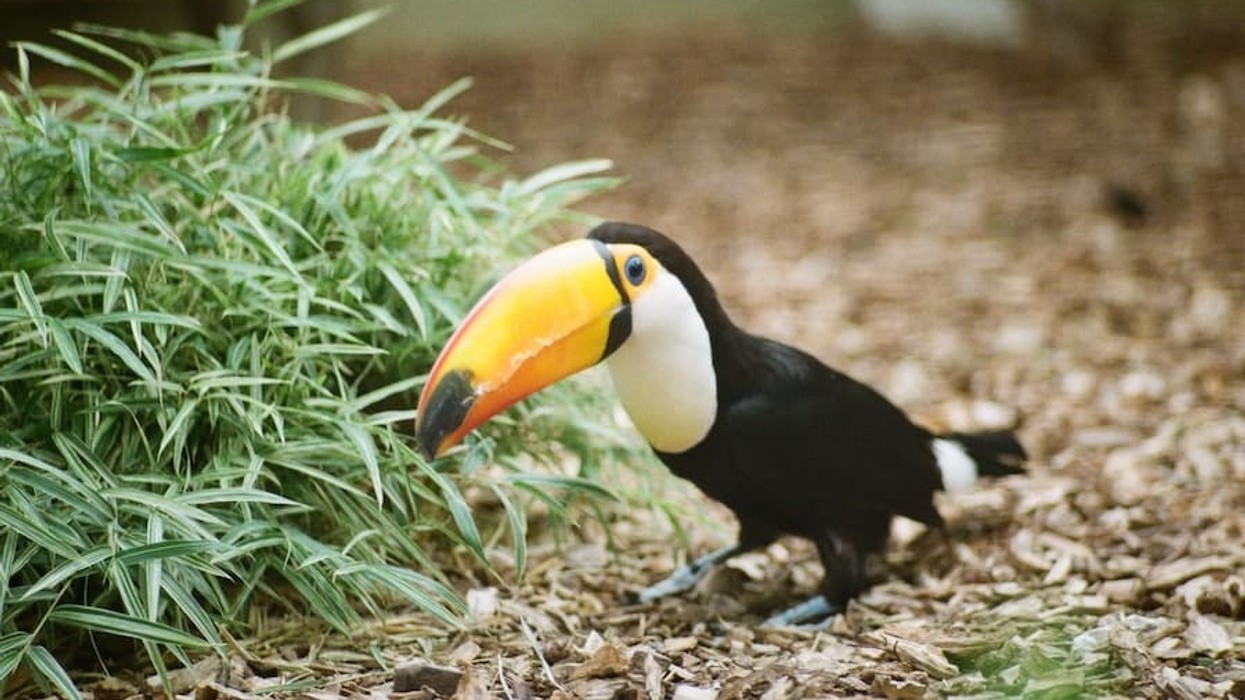
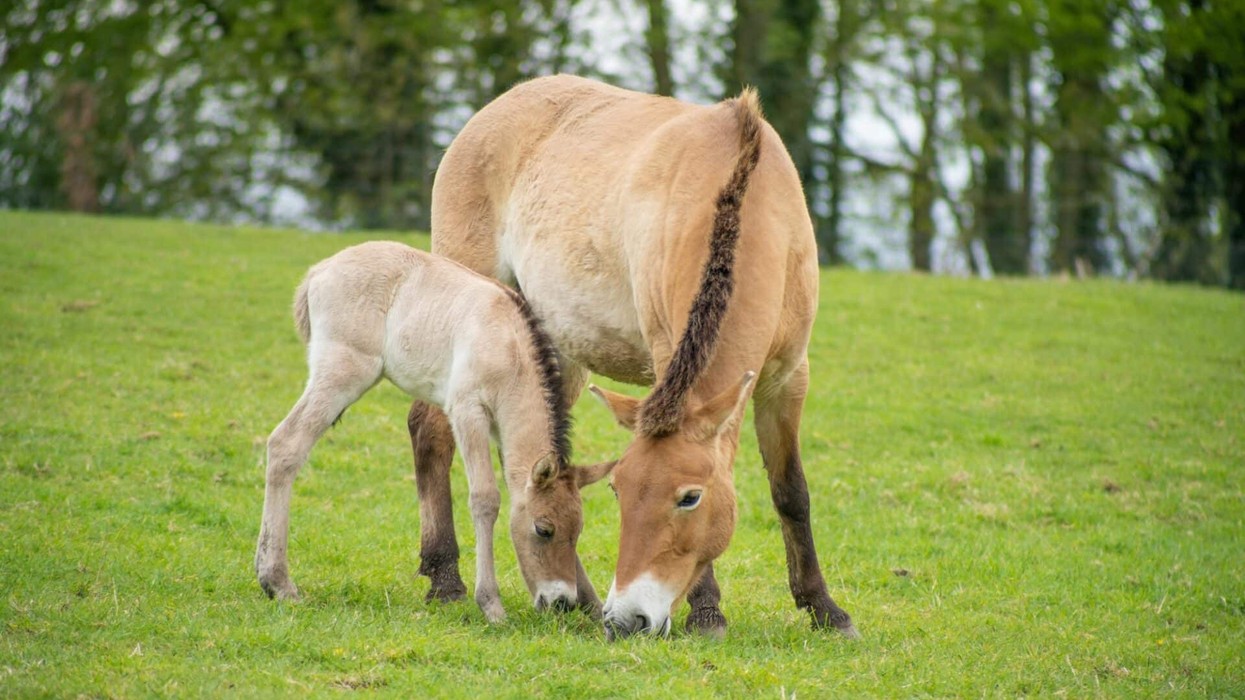


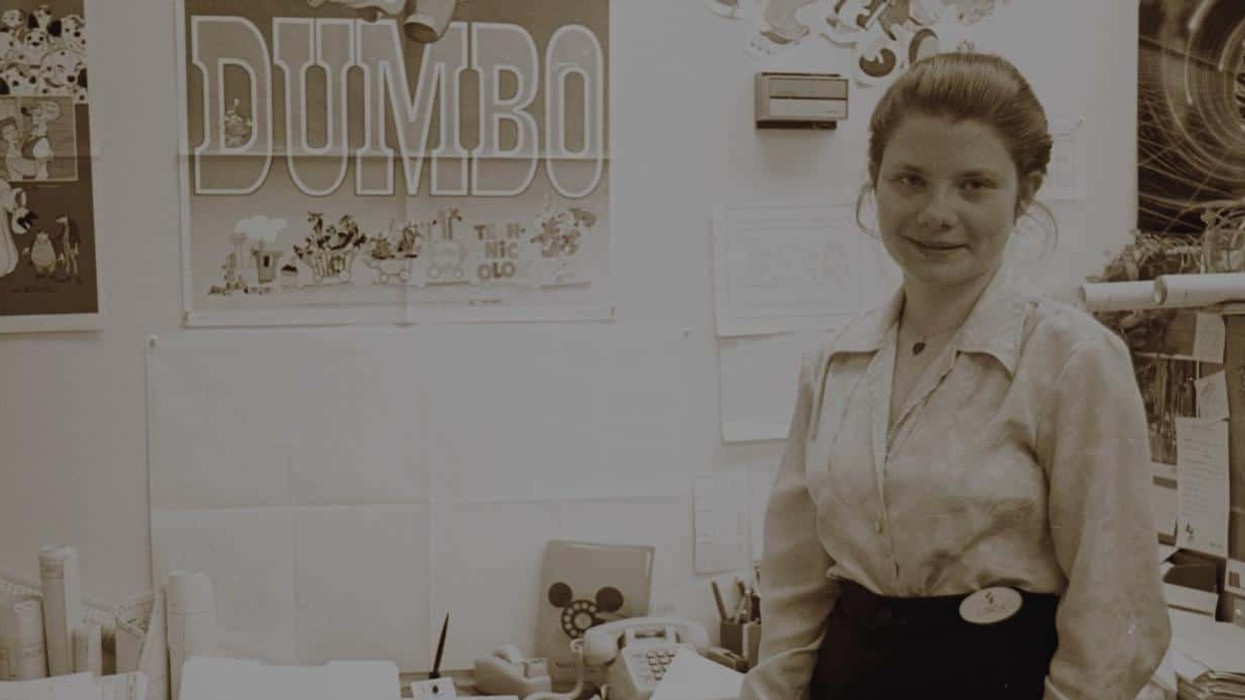

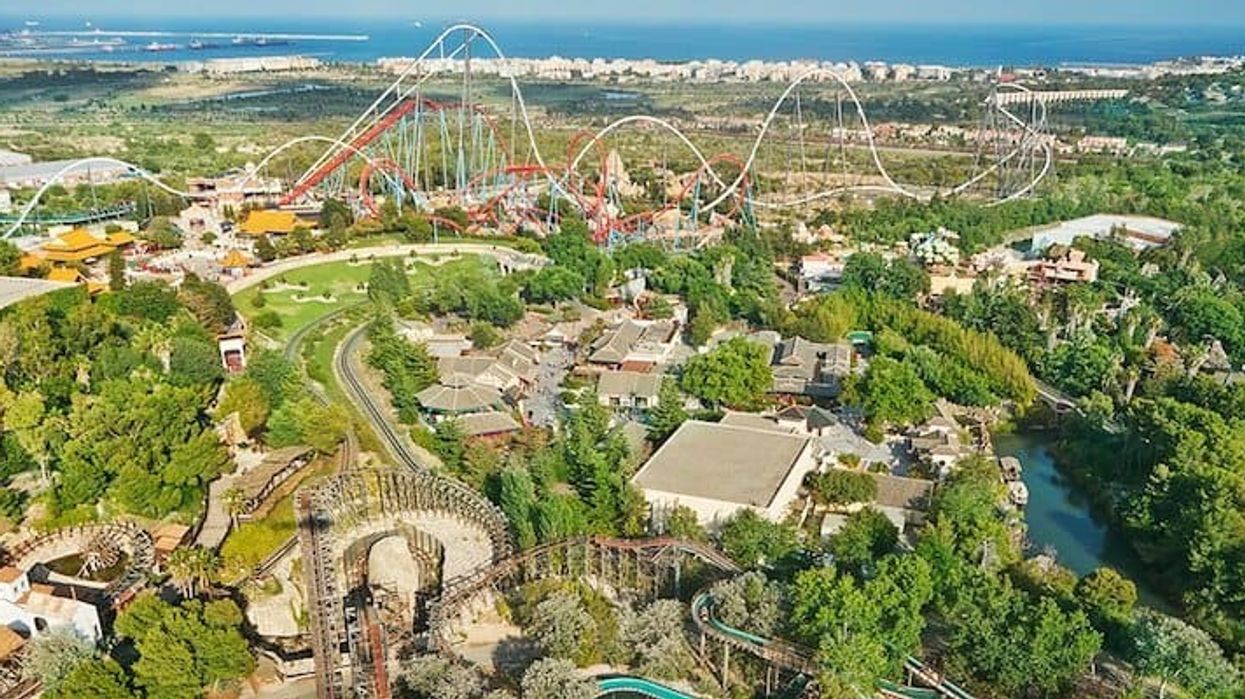

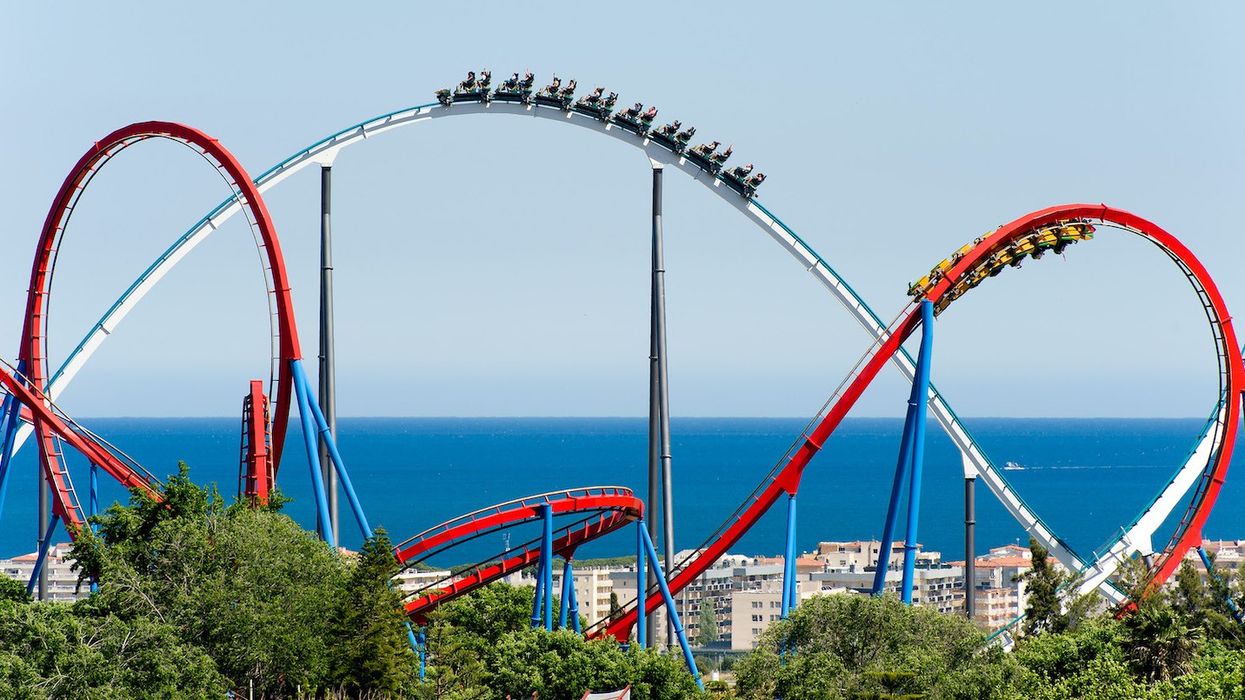
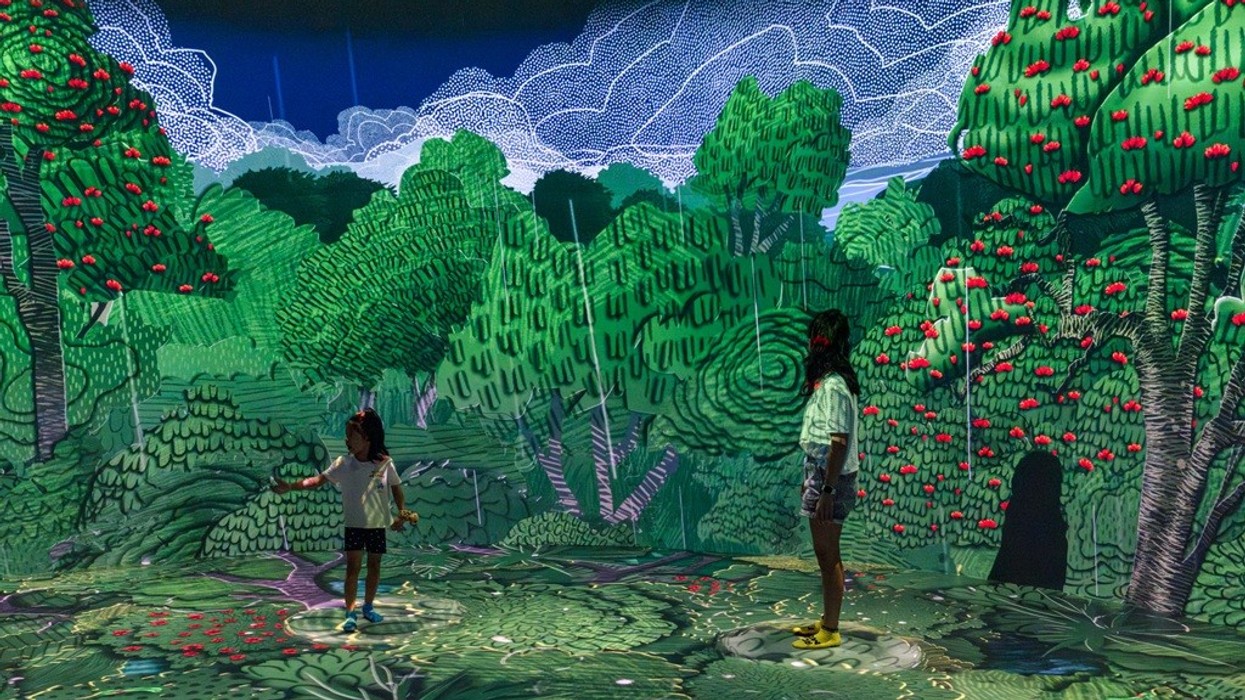
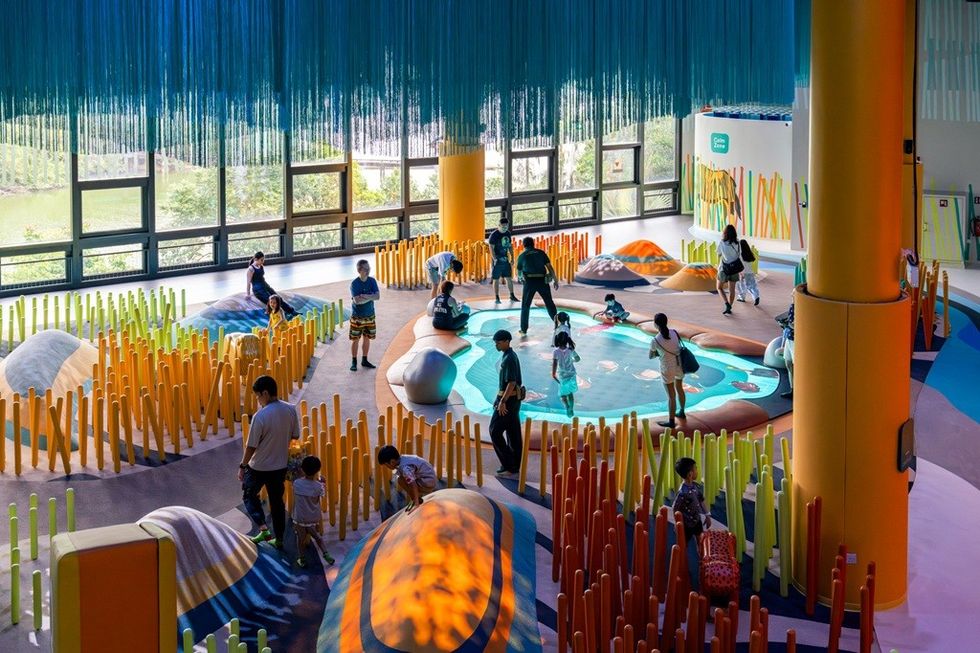
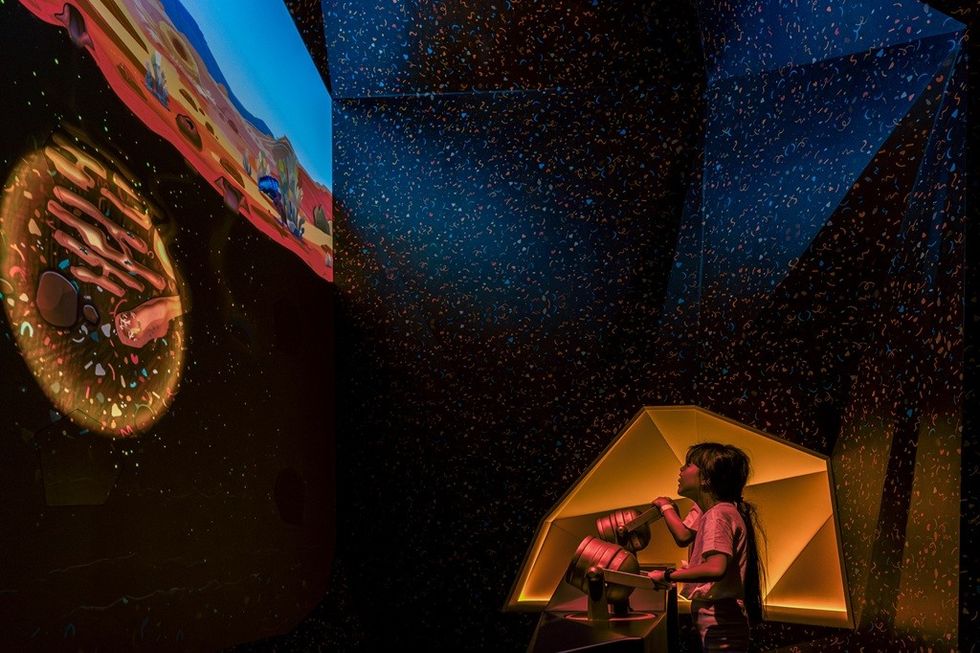
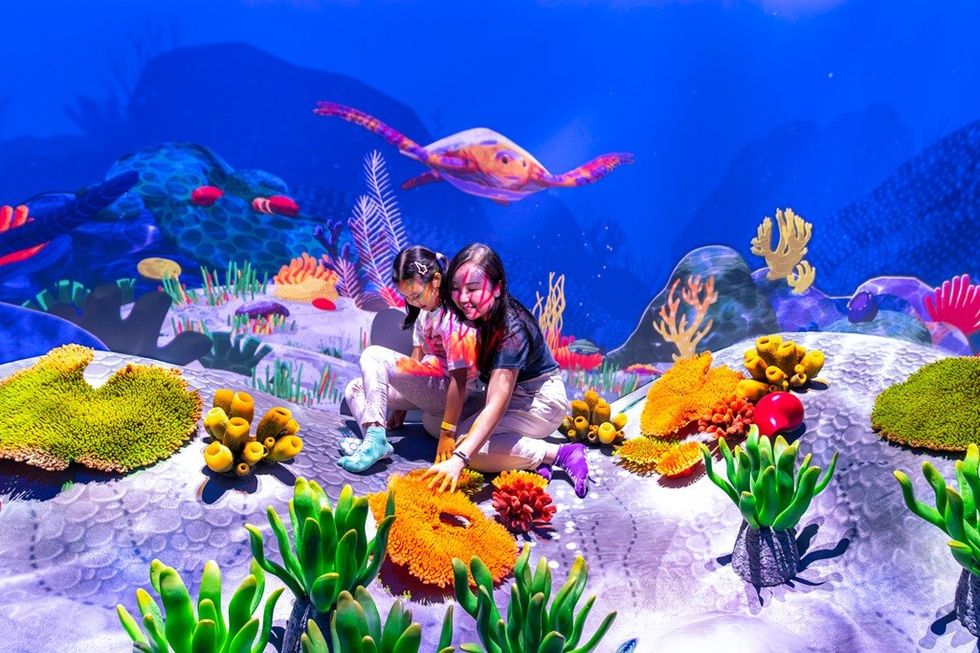


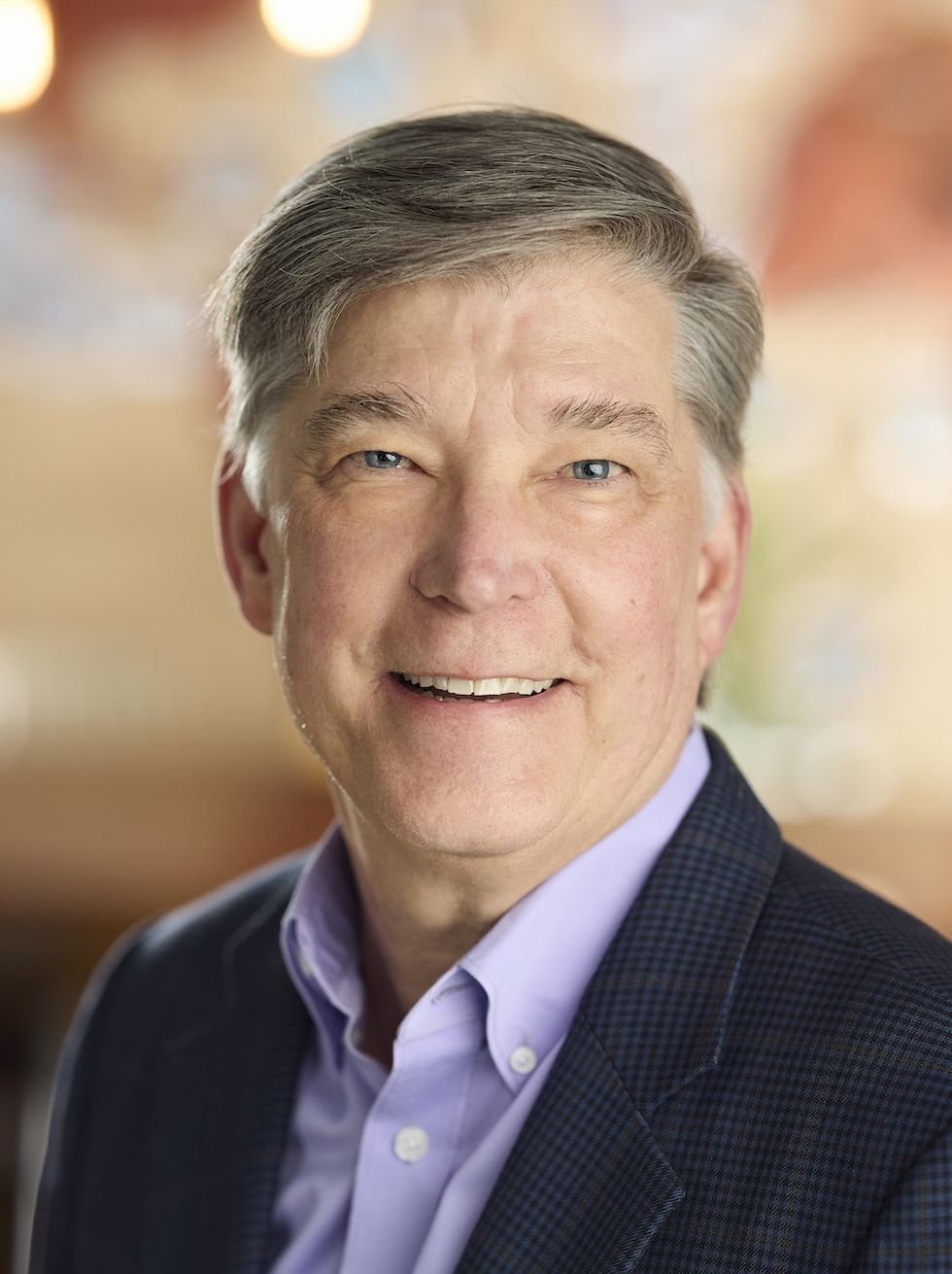

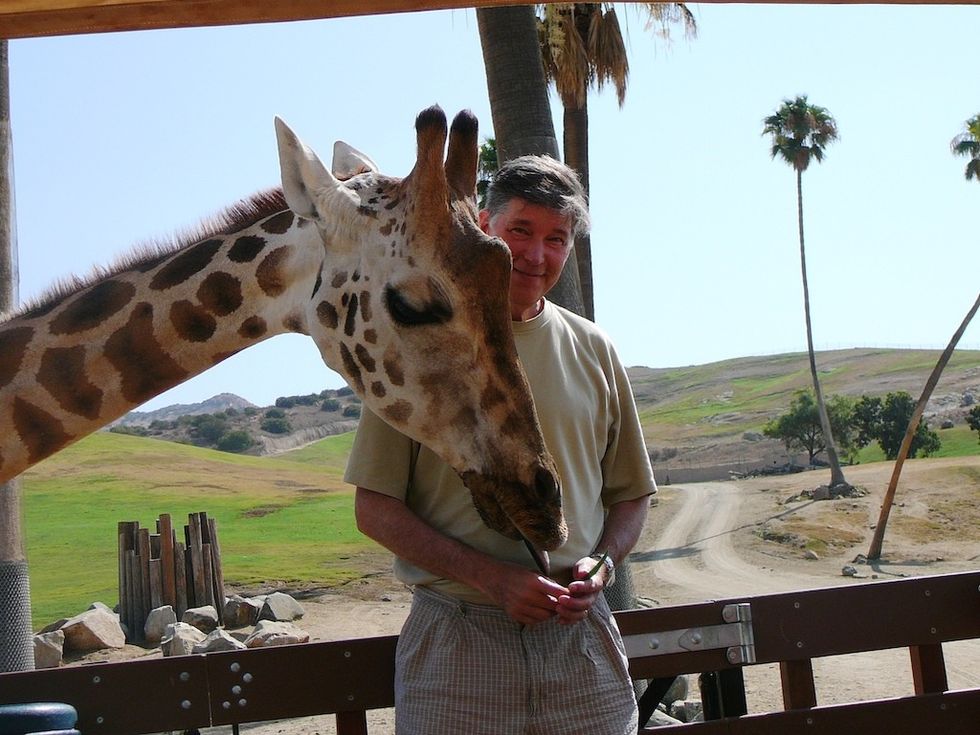
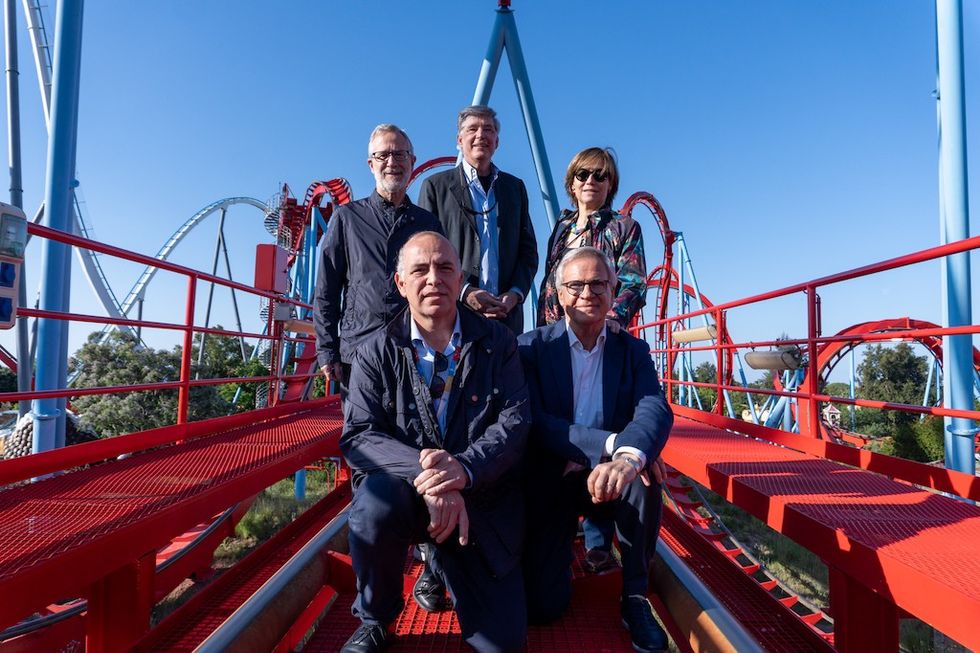
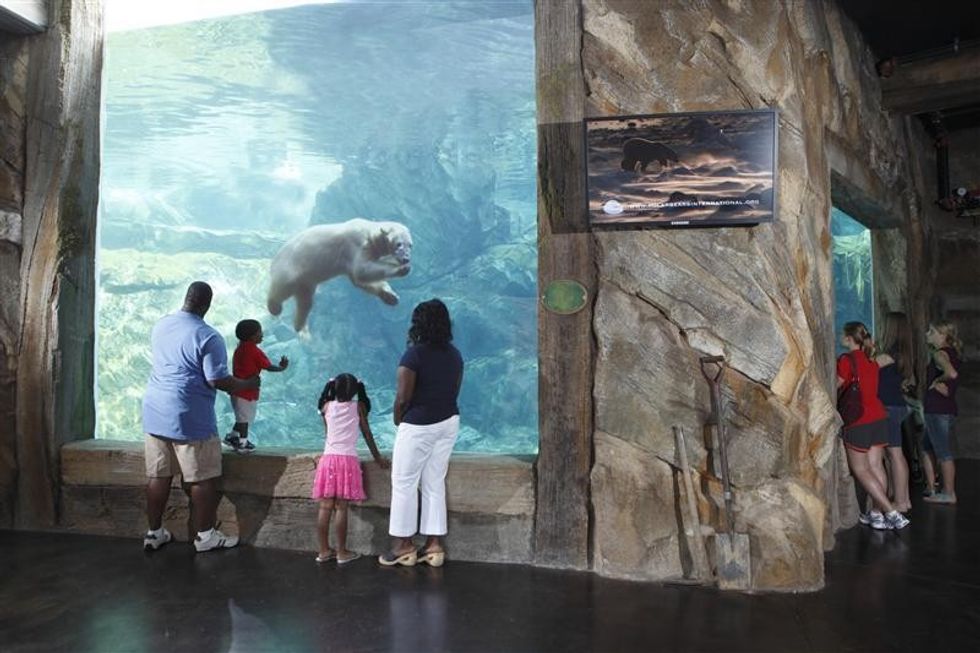
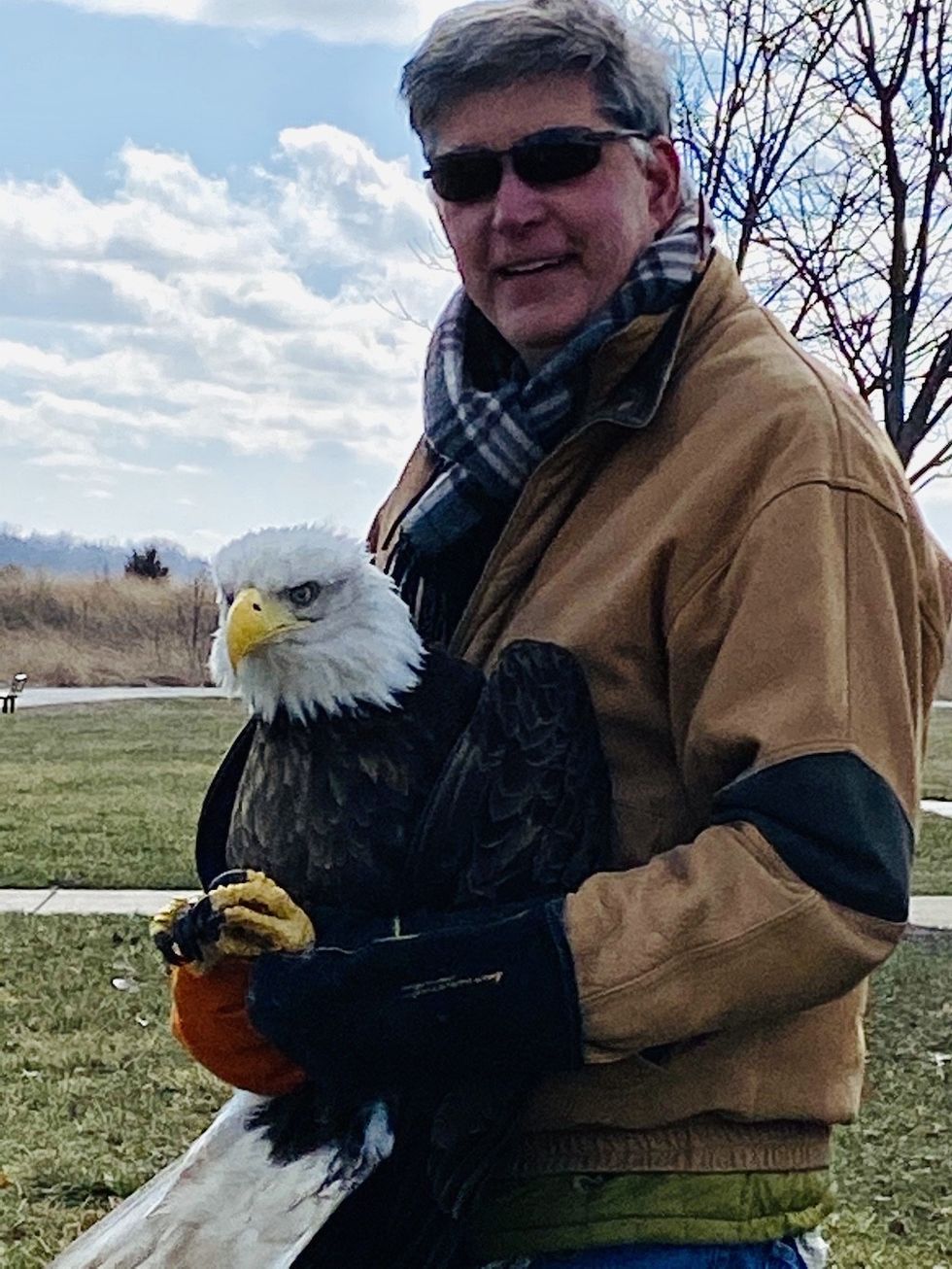
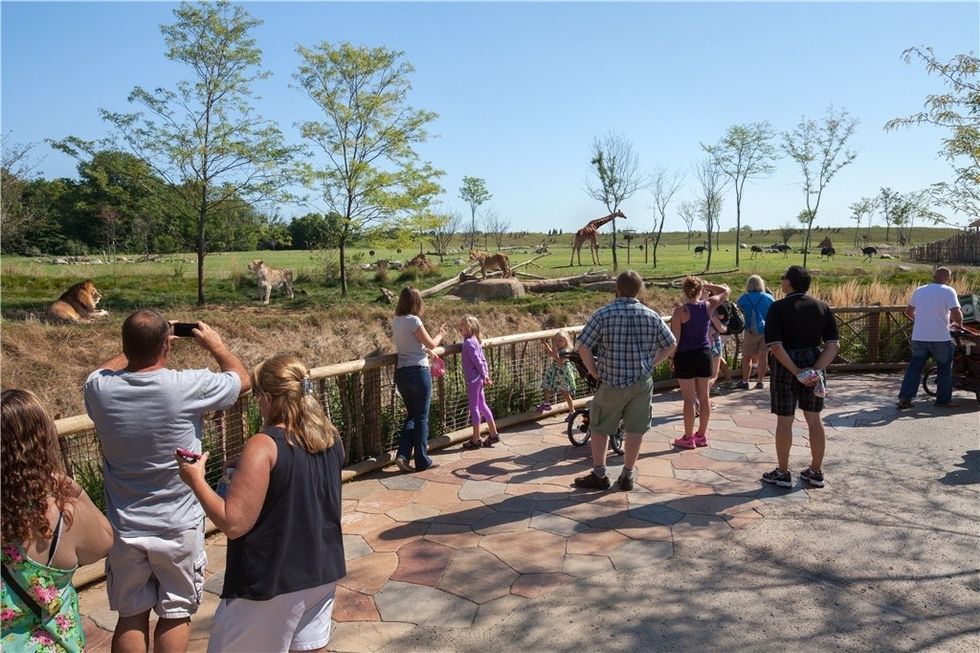
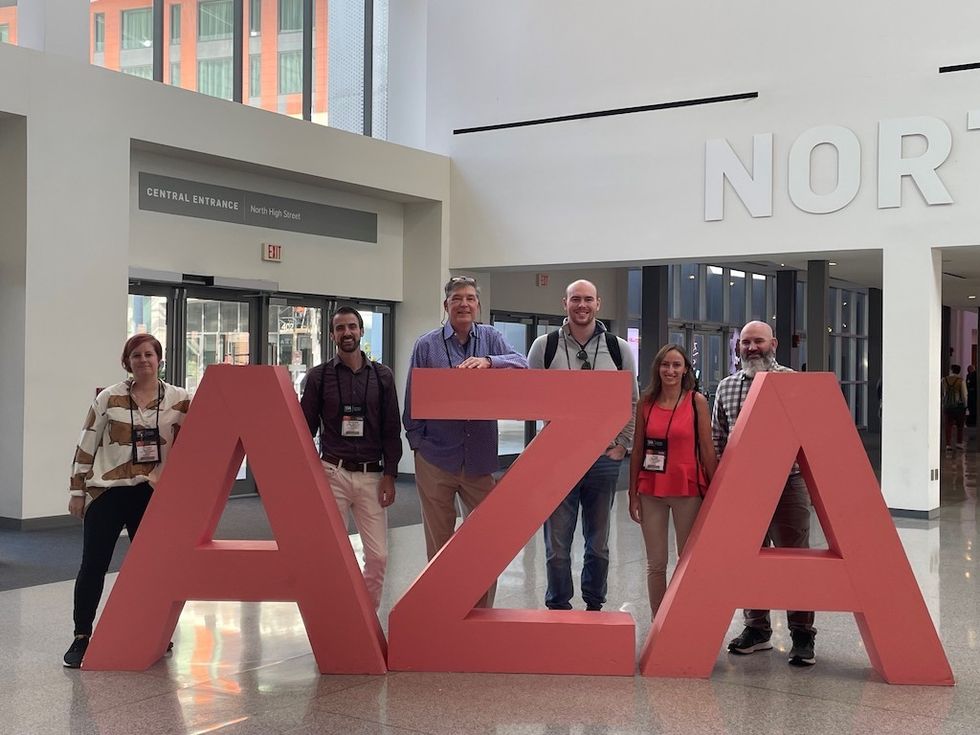

 Refik Anadol's Dataland
Refik Anadol's Dataland 
 Clinique La Prairie, Amaala
Clinique La Prairie, Amaala

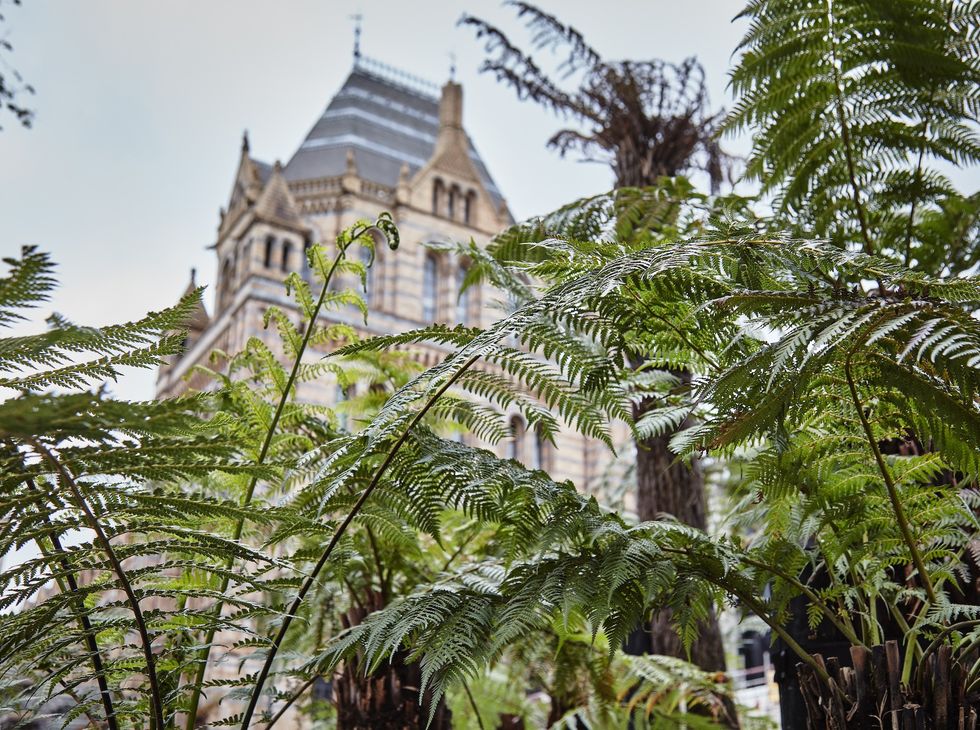

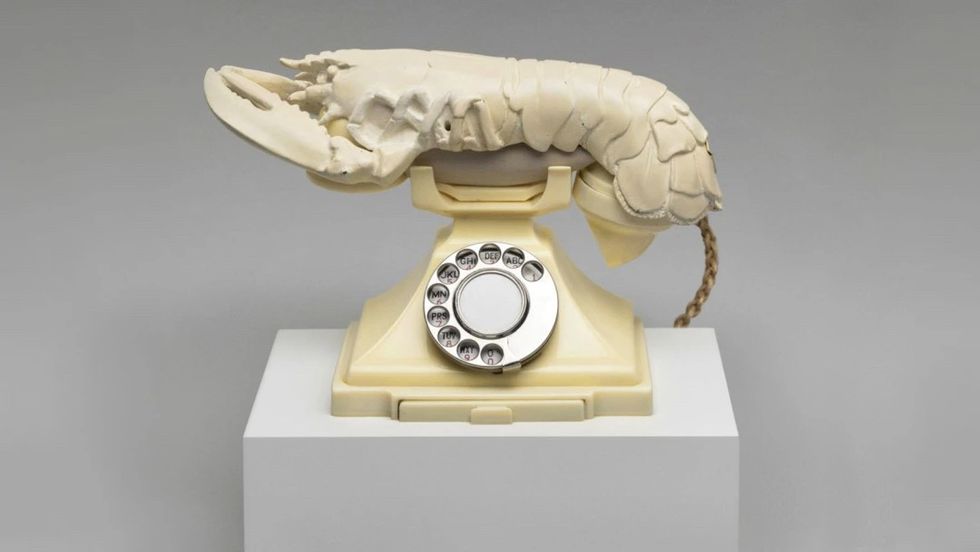 AI-powered Salvador Dalí answering visitor questions at the Dalí Museum
AI-powered Salvador Dalí answering visitor questions at the Dalí Museum



